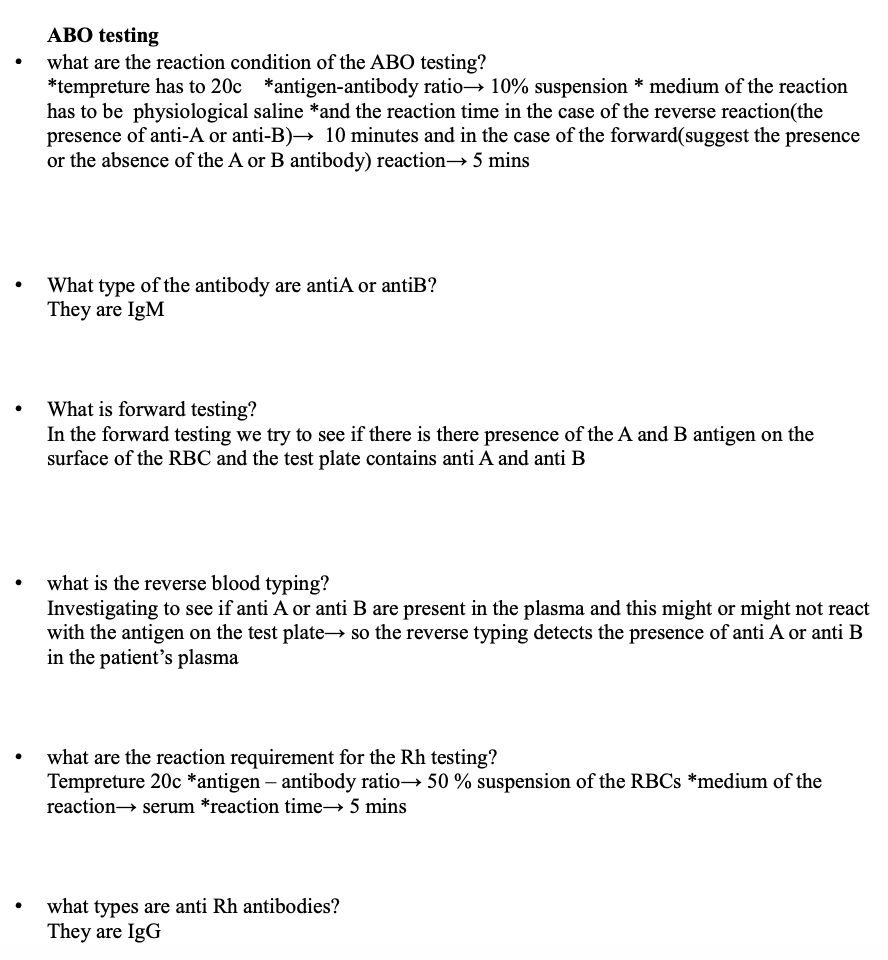Understanding ABO and Rh Testing
Summary:
The text discusses various aspects of blood transfusion, ABO testing, Rh testing, blood storage, and different types of blood components. It covers the reaction conditions for ABO and Rh testing, the types of antibodies (IgM and IgG) involved, and the transfusions, including exchange transfusion. It also mentions the storage conditions and expiration time for different blood components and outlines potential complications and adverse reactions during transfusion, such as acute hemolytic reactions, febrile reactions, and transfusion-related lung injury. The text also explains the usage of different blood components in various clinical scenarios and mentions preventive measures for specific complications.
Excerpt:
Understanding ABO and Rh Testing
Blood Transfusion (questions and answers)
ABO testing
- What is the reaction condition of the ABO testing?
*temperature has to be 20c *antigen-antibody ratio→ 10% suspension * medium of the reaction has to be physiological saline *, and the reaction time in the case of the reverse reaction(the presence of anti-A or anti-B)→ 10 minutes and in the case of the forward(suggest the presence or the absence of the A or B antibody) reaction→ 5 mins - What type of the antibody are antiA or antiB? They are IgM
- What is forward testing?
In the forward testing, we try to see if there is there a presence of the A and B antigens on the
surface of the RBC and if the test plate contains anti-A and anti-B - What is reverse blood typing? Investigating to see if anti-A or anti-B are present in the plasma and this might or might not react with the antigen on the test plate→ so the reverse typing detects the presence of anti-A or anti-B in the patient’s plasma
- What is the reaction requirement for the Rh testing? Temperature 20c *antigen-antibody ratio→ 50 % suspension of the RBCs *medium of the reaction→ serum *reaction time→ 5 mins
- What types are anti-Rh antibodies? They are IgG
- What is the general rule for the transfusion of plasma?
That we have to use plasma for transfusion that doesn’t have antibodies against the
RBCs


Reviews